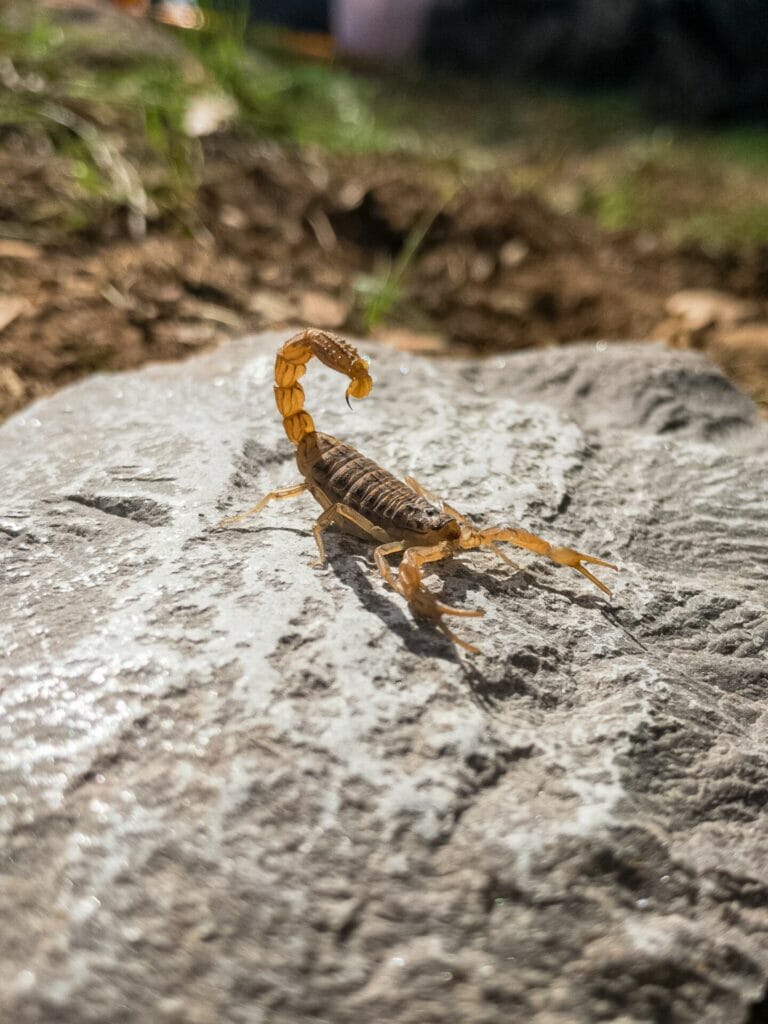Arizona Bark Scorpions hibernate in the winter months.
Scorpions don’t die off during the winter. Although they are less active in the cold, rest assured, your creepy friends are still alive and well.
As temperatures drop in the fall, bark scorpions prepare for hibernation. They often gather in groups of 30 – 40 or more. During this time of hibernation, they are not on the hunt for food since they don’t eat. In the spring, when evening temperatures get over 73 degrees Fahrenheit, they will become more active and begin their foraging for food. As they awake from hibernation, the cycle of survival for this small killer continues.
So where do scorpions go during the cold winter months? They seek out the warmest locations they can find. Usually scorpions will move indoors to a quiet dark space. Often times this is inside the walls of homes, underneath cabinets or behind baseboards. We have also found them inside fence block huddled together in small colonies.
So do I need to treat for scorpions during the winter? We recommend consistent year-round pest treatment and here is why:
1. One of the best ways to control these annoying and sometimes deadly pests is to control their food source. Since scorpions feed on other common pests such as crickets, beetles and roaches, it is best to regularly spray and maintain control of other pest populations so that as the temperatures warm up, the scorpions do not find themselves at the buffet table. If they can’t find an adequate food source, they will not take up residence in and around your home.
2. If you’ve had scorpion problems prior the cold months, make sure you tell your pest professional. At XTERMIN, we like to take the offensive against these resilient critters during the winter months by identifying and treating their harborage sites where we can successfully eradicate entire colonies even while they hibernate.
3. Even during winter months people encounter scorpions in their homes and businesses. Even unusually warm winter days will increase their activity. An exterior and interior treatment barrier will prevent them from surviving their migration inside your home or business.
If you have any questions, feel free to contact us. If you’d like to schedule service click HERE.
Basic first aid measures can be used to help remediate scorpion stings:
- Clean sting site with soap and water
- Apply a cool compress (cool cloth)
- Take acetaminophen or ibuprofen for local pain and swelling
For severe reactions to a scorpion sting, call 911 for emergency response or for information call Poison Control at 1 (800) 222-1222.
